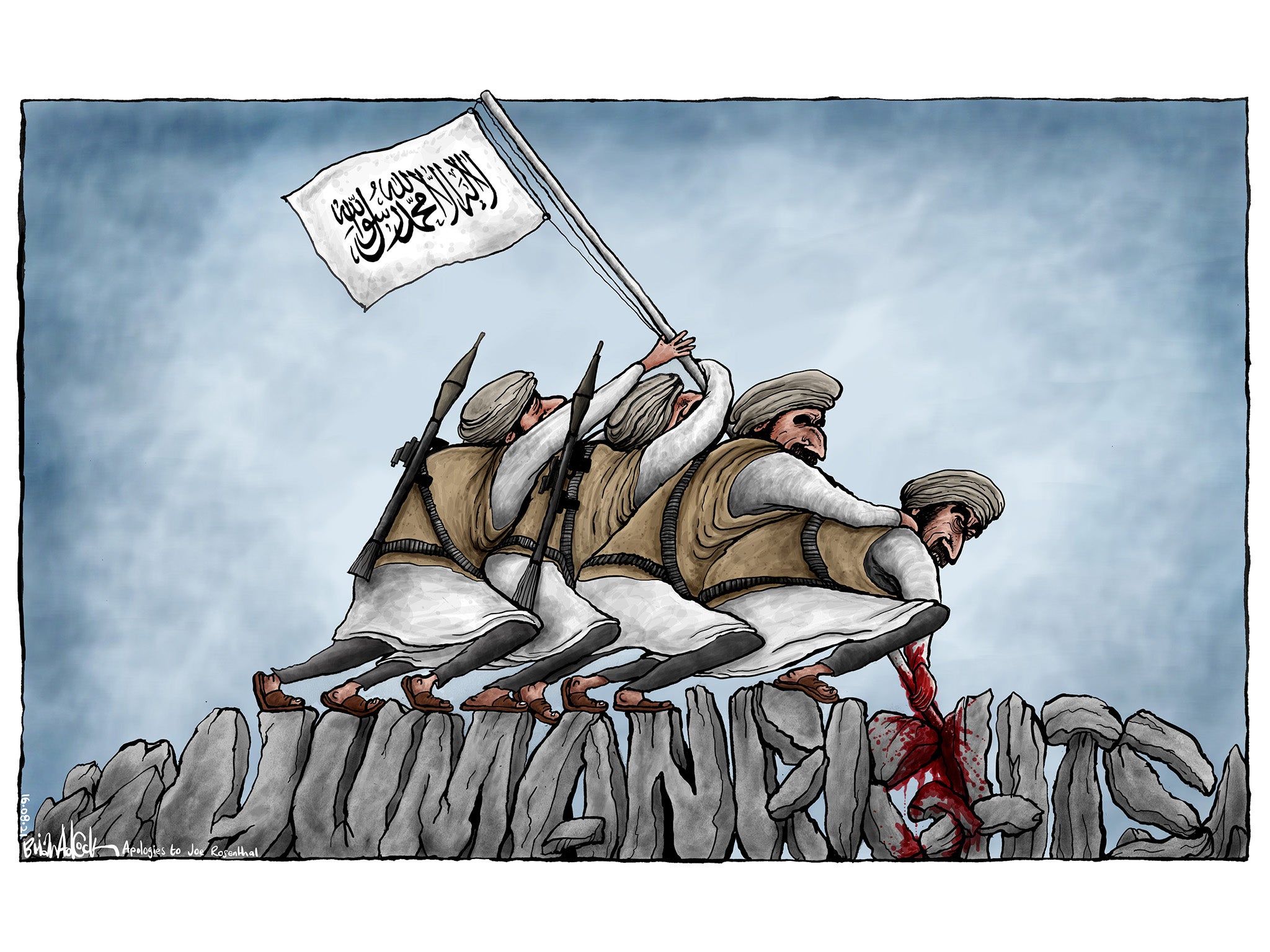Events on the ground in Afghanistan are moving faster than anyone expected. Developments that experts thought might take weeks or months are happening in days as the country falls back into the hands of the Taliban, which is already through the gates of Kabul.
Of course, the collapse of the Afghan authorities and military can be attributed to the United States’ disastrous decision to withdraw its troops by the 20th anniversary of the 9/11 attacks next month. The focus on decisions by Donald Trump and then Joe Biden has resulted in remarkably little political debate in the UK – wrongly, since the government joined the 2001 invasion of Afghanistan and saw the deaths of 457 service personnel before following the US’s lead in starting to withdraw its troops.
Boris Johnson and his ministers have been slow off the mark to respond to what is a humiliation for the UK as well as the US. In a complacent statement to parliament on 8 July, the prime minister insisted that “we are not about to turn away” from Afghanistan, saying the UK could “take pride” in being part of the effort to stamp out terrorist attacks emanating from the country. The priority now, he said, is to preserve “vital gains” on issues such as girls’ education and women’s rights.
His words were quickly overtaken by events. The Afghan people have every right to think the UK, like the US, is “turning away”. UK ministers now admit that the terrorist threat to the west from Islamic extremists who have fought alongside the Taliban is very real and might even force Mr Biden to send troops back to Afghanistan in the event of another attack on American soil. Mr Johnson has no grounds for believing his “vital gains” will be preserved. The government does not trust the Taliban to maintain the safety of British diplomats, who are being hurriedly evacuated, so how can it trust the fundamentalist group’s promise not to return to the barbaric, medieval rule of when it was last in control?
The prime minister did not call a meeting of the Cobra emergency committee until Friday. Dominic Raab, the foreign secretary, appears to be missing in inaction. The government has looked slow and grudging in responding to the plight of interpreters and other Afghans who helped the UK in the country and who are now in great peril. Sometimes it offered them a safe haven only after being shamed by media reports.
It appears the UK did sound out Nato allies such as France and Germany about maintaining a presence in Afghanistan without the US but found no takers and decided it could not go it alone. This episode highlights the limits of “global Britain” – a country totally dependent on America, without the ability to influence it, which has also cut itself adrift from its European partners.
Mr Johnson has belatedly recognised the severity of the crisis by agreeing to demands by opposition MPs to recall parliament from its summer break on Wednesday. That is welcome. Until now, ministers have tried to keep their heads down and the limited domestic debate has been led by backbenchers. Tom Tugendhat, who chairs the Commons Foreign Affairs Select Committee, describes current events as “clearly the biggest single foreign policy disaster” since the 1956 Suez crisis. Tobias Ellwood, who chairs the Defence Select Committee, fears an attack on the scale of 9/11 “as a poke in the face to the western alliance to show how fruitless our efforts have been over the last two decades”.
The PM can still salvage something from the wreckage of the UK’s policy. He should override the Home Office’s apparent reluctance to send a wrong signal about asylum policy by meeting the UK’s moral obligation to about 5,000 people who have helped it during its time in Afghanistan, dual passport holders and aid and security workers. The government should reverse any cuts in aid to the country stemming from its disastrous £4bn reduction in the UK’s international development budget. There have been warnings that bilateral aid to Afghanistan could be cut by as much as 78 per cent. The fifth largest economy in the world can afford to be a generous contributor to international efforts to tackle the inevitable humanitarian and refugee crisis.
Mr Johnson should also order the Foreign Office to reverse its shameful decision to suspend this year’s Chevening scholarships in the UK for more than 30 Afghans due to “administration issues”.
The UK has betrayed the Afghan people once. If Mr Johnson continues to try to keep his head down in the hope that most of the brickbats fly in Washington’s direction, he will do so again. This is no time, in his own words, to turn away.




Join our commenting forum
Join thought-provoking conversations, follow other Independent readers and see their replies
Comments